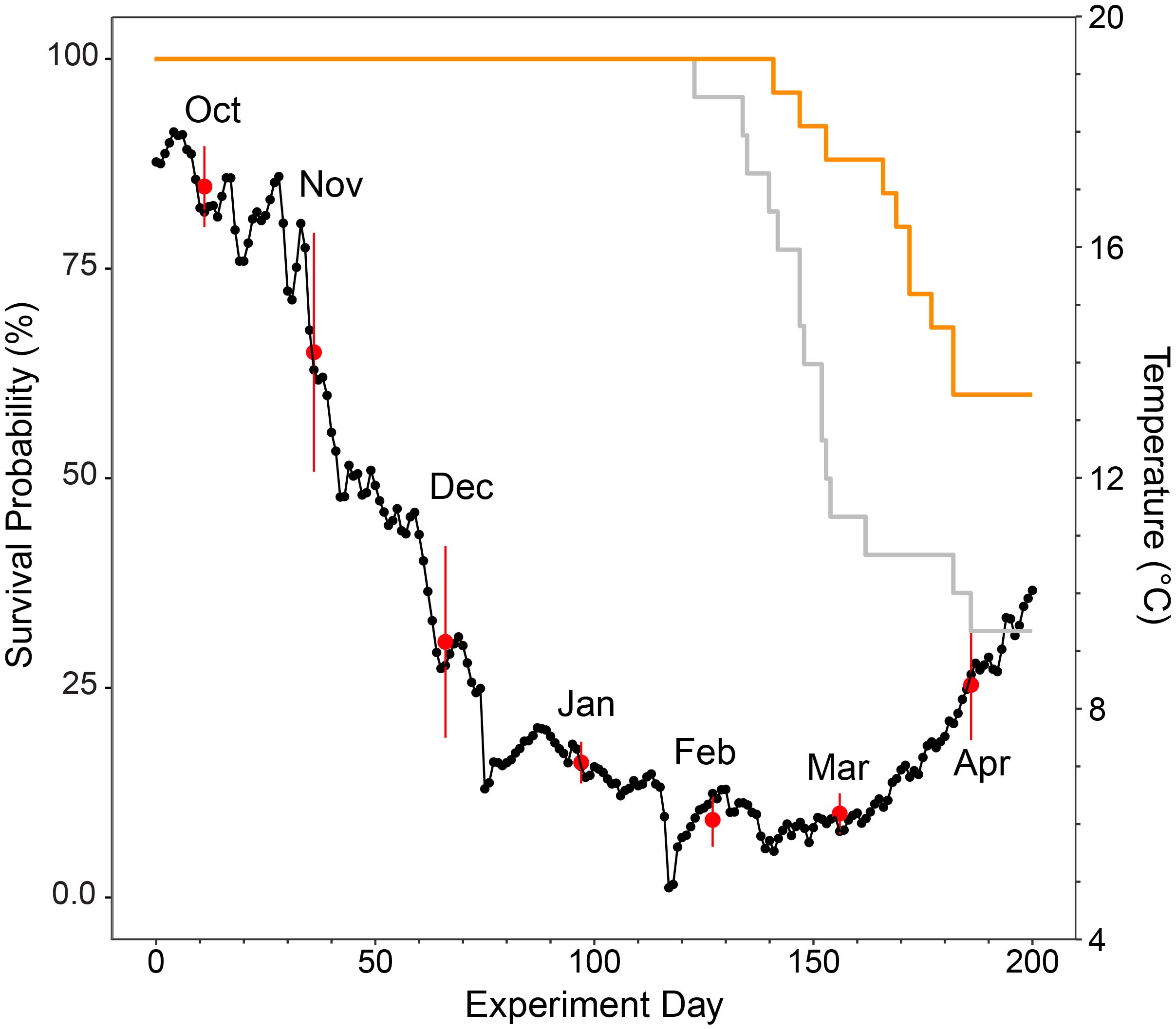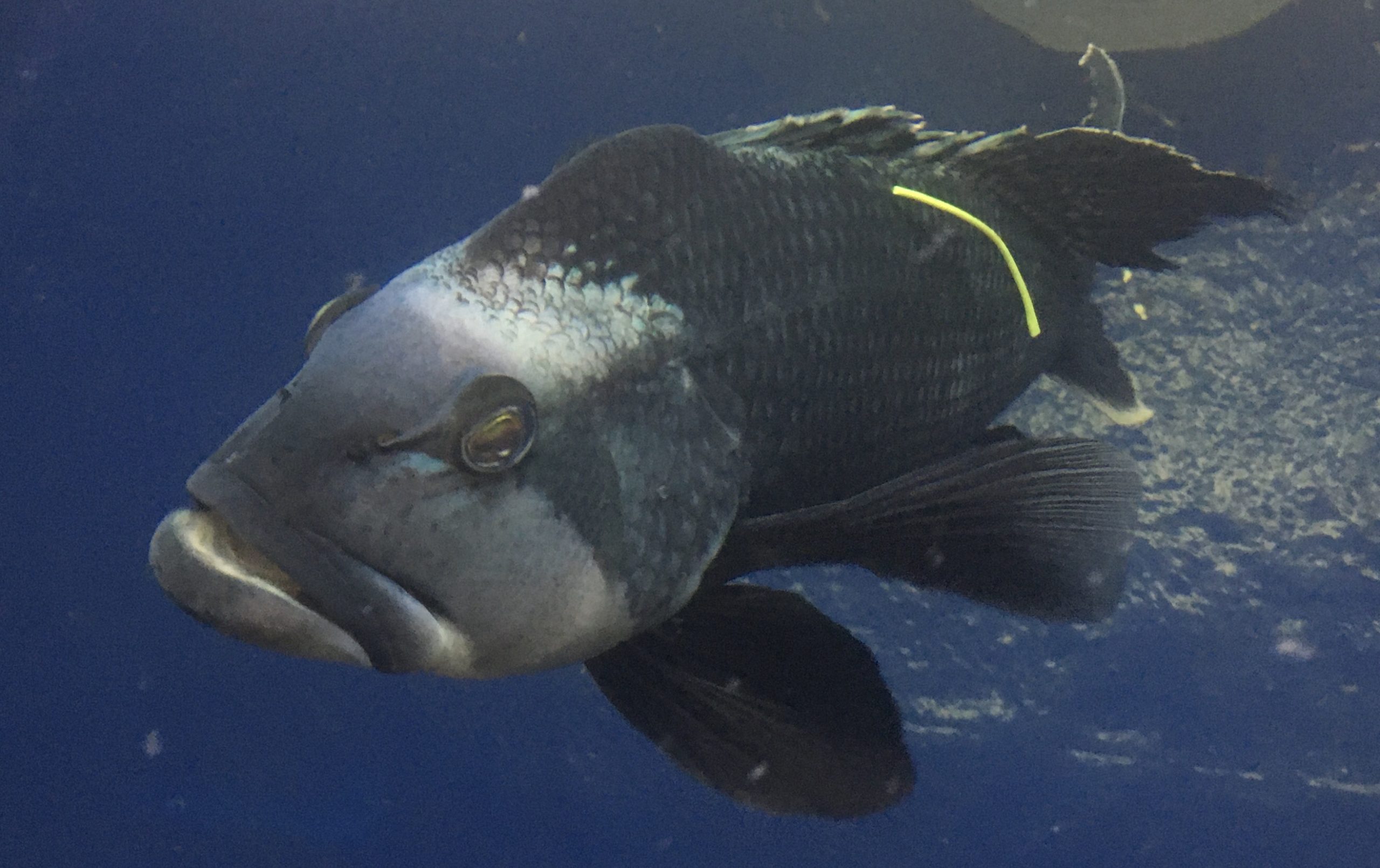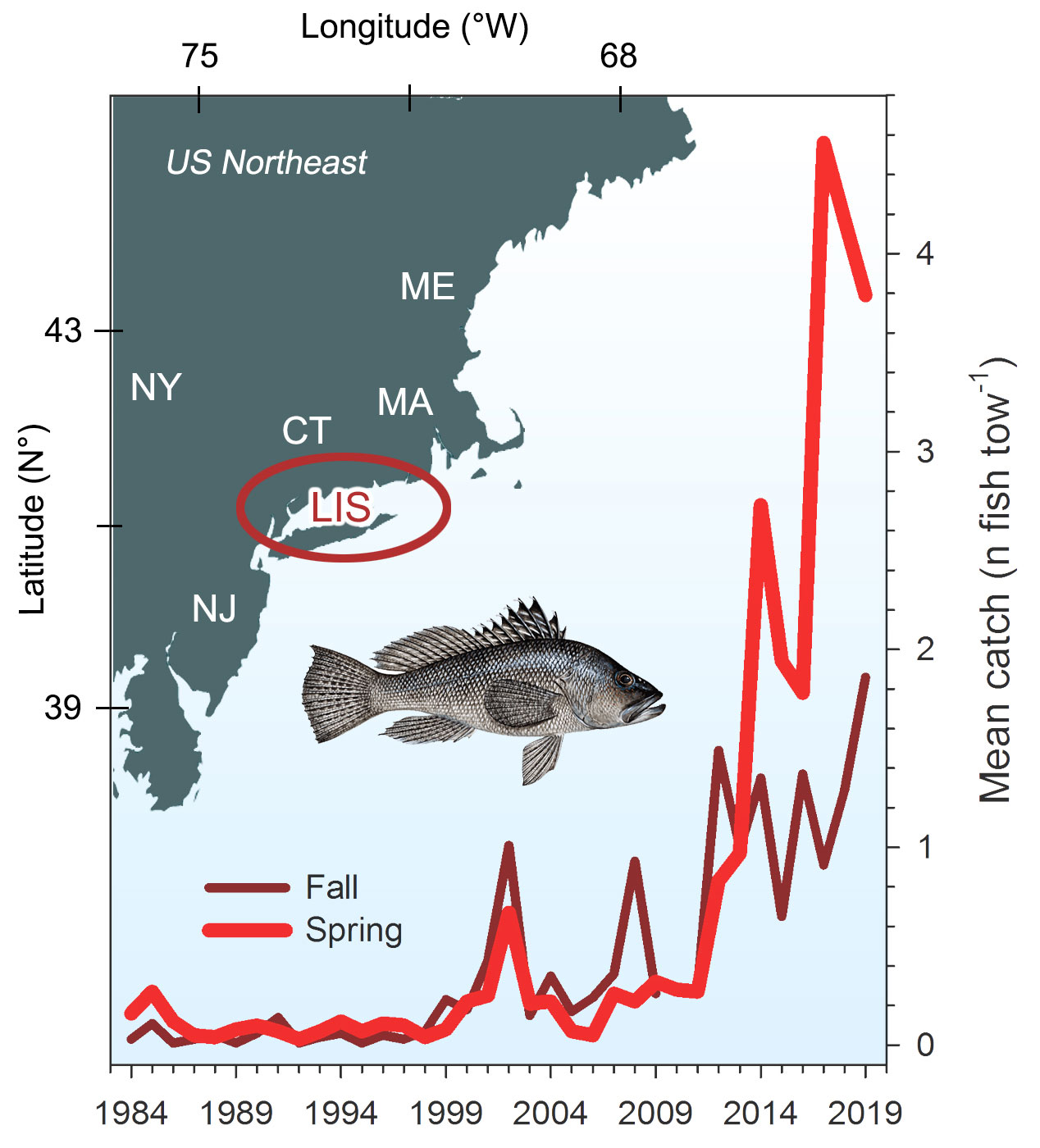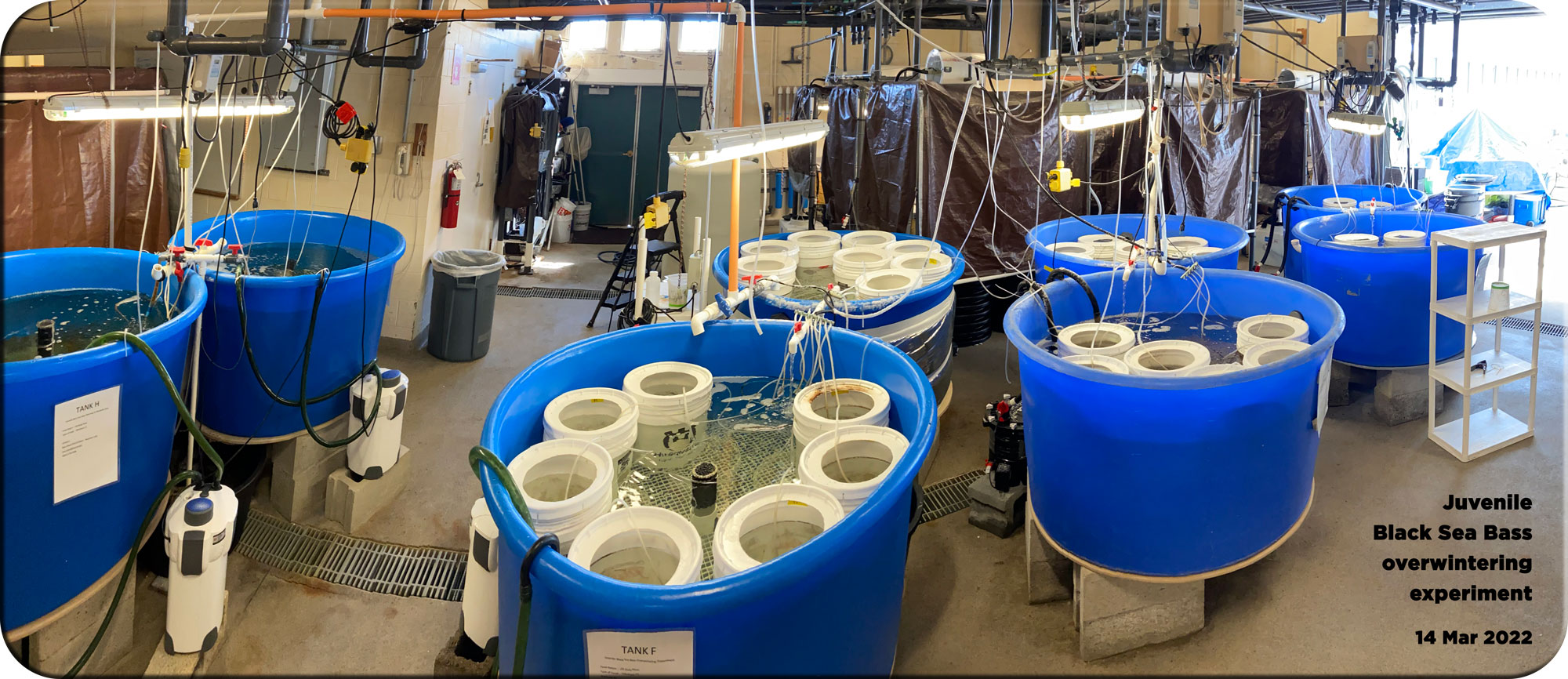18 July 2025. We are thrilled to share that Marine & Coastal Fisheries (an AFS Journal) published today the 3rd chapter of Max Zavell's PhD research! The paper asks the simple but pertinent question
Can adult Black Sea Bass overwinter in Long Island Sound, USA?
The research followed the fate of 2 x 25 adult black sea bass that were angled in Long Island Sound (LIS) in fall 2022 and then kept at realistic winter inshore temperatures in two large flow-through tanks at the Rankin Seawater Laboratory of the University of Connecticut at Avery Point. The authors repeatedly measured survival, length- and weight growth, gonad investment and lipid contents of experimental and wild fish. They cautiously conclude that
"At present, overwintering in LIS appears possible but likely disadvantageous for Black Sea Bass, because offshore winter migration results in greater energy reserves and subsequent reproductive investment. In the future, however, warming coastal waters will continue to shorten the duration of unsuitable winter temperatures, which could become conducive to year-round inshore residency or partial migration patterns in the northern stock of Black Sea Bass."
The article was published Open Access. Congratulations, Max et al.!
- Zavell, M.D.*, Mouland, E.P.*, Barnum, D.L.*, Matassa, C.M., Schultz, E.T., and Baumann, H. (2025)
Can adult Black Sea Bass overwinter in Long Island Sound, USA?
Marine and Coastal Fisheries 17:vtaf014 (published Open Access online 18 July 2025)




